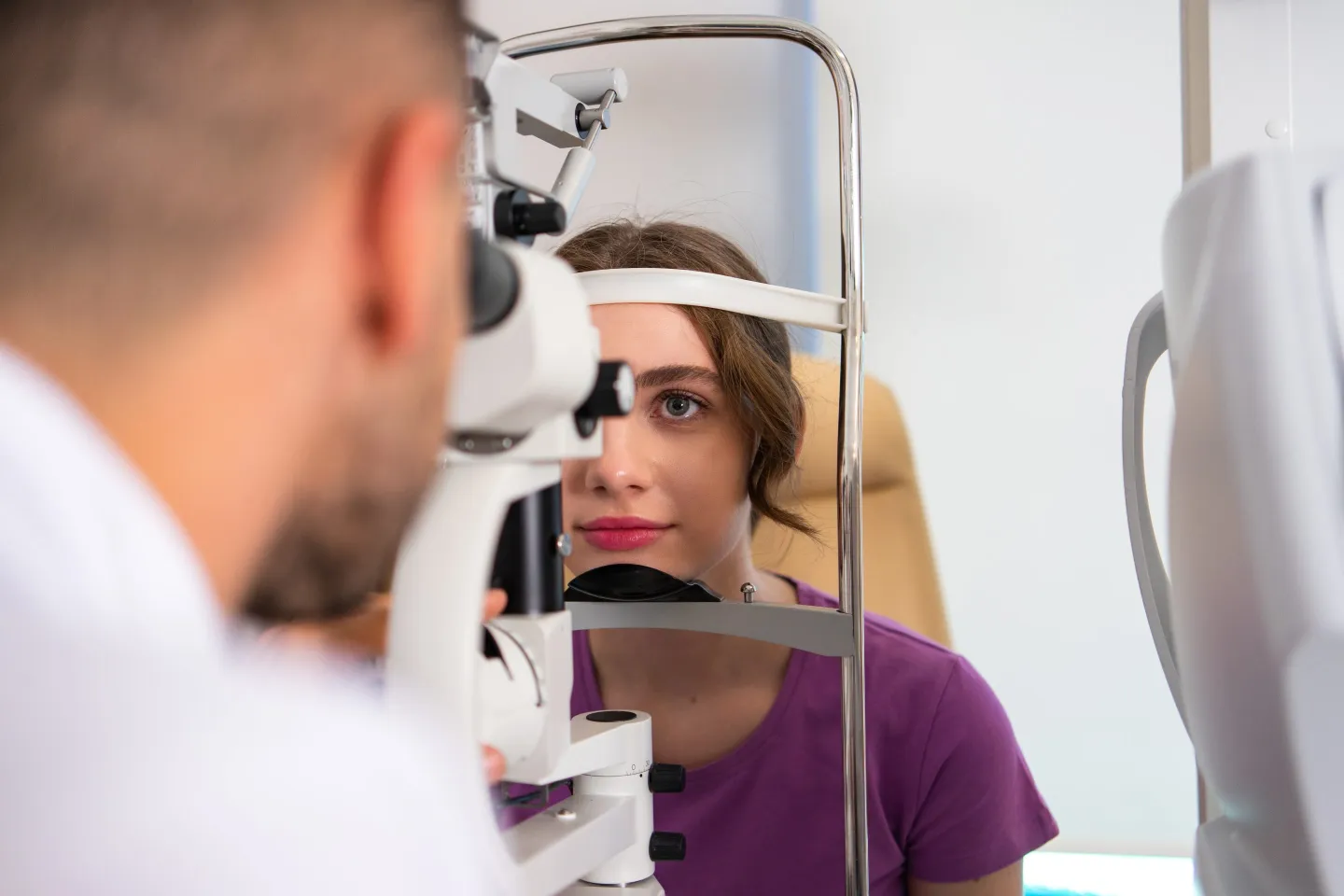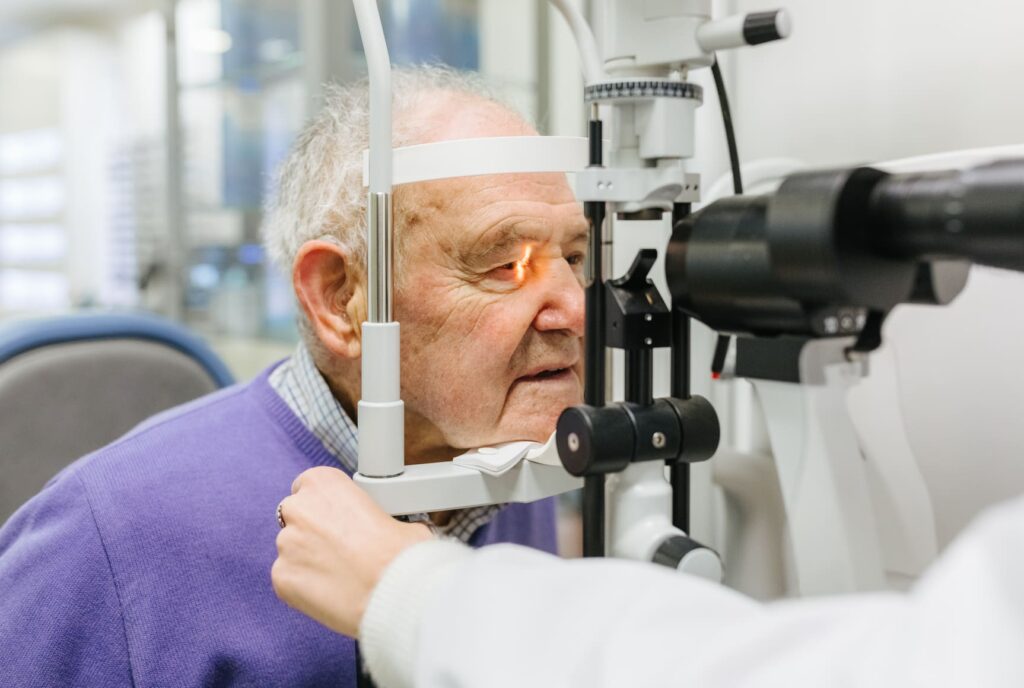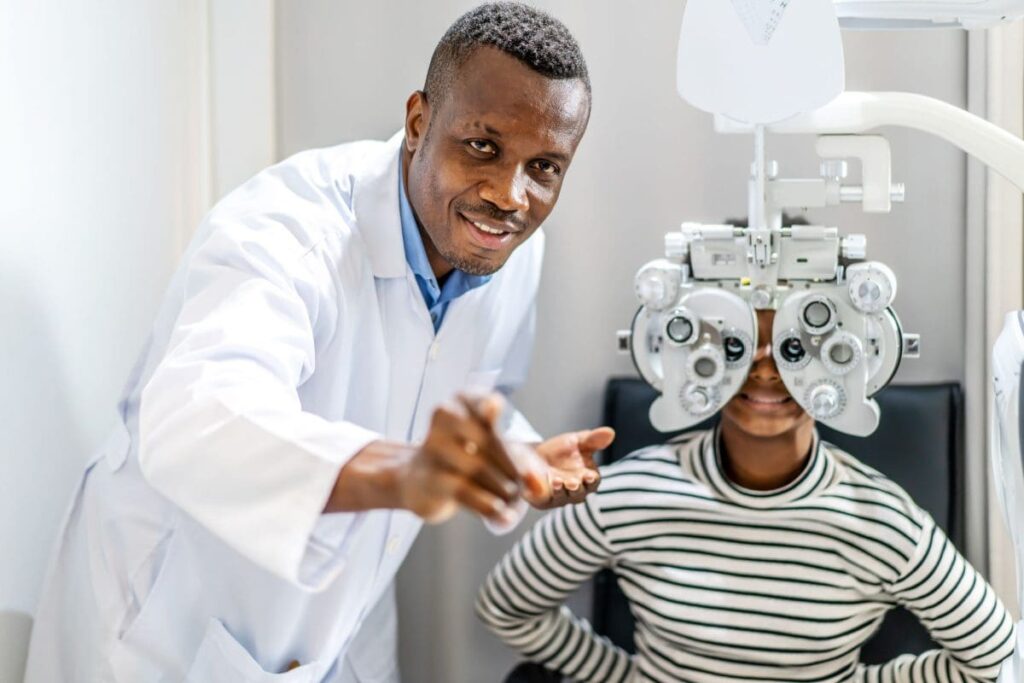
In today’s fast-paced and visually oriented world, maintaining good eye health is of utmost importance. One crucial aspect of eye care is the health of the retina, which plays a vital role in our overall vision. To ensure the well-being of your eyes, it is essential to consult a retinal specialist, a medical professional with specialized knowledge and expertise in diagnosing and treating retinal conditions.
Understanding the Role of a Retinal Specialist
The retina is a thin layer of tissue located at the back of the eye. It is responsible for converting light into electrical signals that are then transmitted to the brain, allowing us to perceive the world around us. A retinal specialist is a physician who has undergone additional training to specifically focus on the diagnosis and management of diseases and conditions affecting the retina.
The Importance of Specialized Eye Care
When it comes to the delicate nature of the retina, specialized care is paramount. Retinal specialists have an in-depth understanding of the complex structures and functions of the retina, enabling them to provide personalized and effective solutions for various retinal conditions. By consulting a retinal specialist, you can rest assured that your eye health is in the hands of a highly skilled professional dedicated to preserving and improving your vision.

The Expertise of a Retinal Specialist
Retinal specialists possess a wealth of knowledge and experience in the field of ophthalmology. They are equipped with the latest diagnostic tools and techniques, allowing for accurate and comprehensive evaluation of retinal health. Whether you are experiencing symptoms or simply seeking preventive care, a retinal specialist can provide expert advice and guidance based on their extensive training and expertise.
Furthermore, retinal specialists often collaborate with other healthcare professionals, such as optometrists and general ophthalmologists, to ensure a multidisciplinary approach to eye care. This teamwork allows for a more holistic and comprehensive treatment plan, addressing not only the immediate retinal issues but also considering the overall health and well-being of the patient.
Patients with retinal conditions may benefit from the specialized skills of a retinal specialist in various ways, including the management of age-related macular degeneration, diabetic retinopathy, retinal detachment, and other complex retinal disorders. The expertise of a retinal specialist extends beyond diagnosis and treatment, encompassing ongoing monitoring and management to optimize visual outcomes and quality of life for patients.
The Connection Between Retinal Health and Overall Vision
Many people underestimate the role the retina plays in overall vision. The health of the retina directly impacts our ability to see clearly, as it is responsible for capturing and transmitting visual information to the brain. Understanding how retinal diseases can affect vision is crucial in appreciating the significance of regular retinal care.
The retina, a thin layer of tissue located at the back of the eye, contains millions of light-sensitive cells that convert light into electrical signals. These signals are then sent to the brain through the optic nerve, where they are processed into the images we perceive. Without a healthy retina, this intricate process can be disrupted, leading to vision problems and potential vision loss.
How Retinal Diseases Affect Vision
Retinal diseases, such as age-related macular degeneration, diabetic retinopathy, and retinal detachment, can lead to vision loss if left untreated. These conditions often cause symptoms such as blurred or distorted vision, blind spots, and even complete vision loss in severe cases. By consulting a retinal specialist, early detection and intervention can help preserve and potentially improve vision outcomes.
Age-related macular degeneration (AMD) is a common retinal disease that affects the central part of the retina, known as the macula. This area is responsible for sharp, detailed vision, making tasks like reading and driving challenging for those with advanced AMD. Diabetic retinopathy, on the other hand, is a complication of diabetes that affects blood vessels in the retina, leading to vision impairment if blood sugar levels are not well-managed.
Preventing Vision Loss Through Retinal Care
Regular retinal examinations are essential for identifying and managing potential vision-threatening conditions. A retinal specialist can detect subtle changes in retinal health that may indicate the presence of disease. Early intervention can significantly increase the chances of successful treatment and prevent further deterioration of vision. By prioritizing retinal care, you are taking proactive steps to protect your vision for the long term.
Aside from regular check-ups, maintaining a healthy lifestyle can also support retinal health. Eating a diet rich in antioxidants, wearing sunglasses to protect against harmful UV rays, and avoiding smoking are all beneficial habits for preserving the integrity of the retina. Remember, your eyes are precious, and caring for your retinal health is an investment in your overall quality of life. Read more about harmful UV rays at https://www.epa.gov/sunsafety/health-effects-uv-radiation
The Benefits of Consulting a Retinal Specialist
There are numerous benefits to consulting a retinal specialist to address your eye health concerns. The expertise and specialized knowledge possessed by these professionals enable them to provide a high level of care tailored to your specific needs. Some key advantages of consulting a retinal specialist include:
When you consult a retinal specialist, you are tapping into a wealth of experience and skill that is focused solely on the intricate complexities of the retina. These specialists undergo extensive training beyond general ophthalmology to hone their expertise in diagnosing and treating a wide range of retinal conditions. Their deep understanding of the delicate structures of the eye allows them to offer precise and targeted interventions for optimal outcomes.
Furthermore, retinal specialists often work in multidisciplinary teams, collaborating with other eye care professionals such as optometrists, ophthalmic surgeons, and researchers. This collaborative approach ensures that patients receive comprehensive care that addresses not only immediate concerns but also long-term vision health. By leveraging the collective knowledge and resources of a diverse team, retinal specialists can offer cutting-edge treatments and access to clinical trials for innovative therapies.
Early Detection of Eye Diseases
Retinal specialists are trained to recognize the subtlest signs of retinal disease, even before symptoms become apparent. Through regular screenings and comprehensive eye examinations, they can identify potential issues early on and initiate timely treatment. Early detection often leads to better outcomes and improved chances of preserving vision.
Personalized Treatment Plans
Retinal specialists understand that each patient is unique and requires an individualized approach to care. They take into consideration various factors such as medical history, lifestyle, and the specific retinal condition present. By tailoring treatment plans to suit each patient’s specific needs, retinal specialists maximize the effectiveness of interventions and optimize vision outcomes.
Common Misconceptions About Retinal Specialists
Unfortunately, there are several misconceptions surrounding retinal specialists that may hinder individuals from seeking their expertise. It is important to debunk these myths in order to make informed decisions about eye care.
Retinal specialists are ophthalmologists who have undergone additional years of training to specialize in the diagnosis and treatment of retinal diseases. They are experts in the intricate structures of the retina and are equipped with the latest knowledge and technologies to provide the best possible care for their patients.
Debunking Myths About Retinal Care
Some people may believe that general eye care providers can adequately handle retinal conditions without the need for a specialist. While general eye care providers play a crucial role in overall eye health, retinal specialists possess advanced training and experience specifically focused on diagnosing and treating retinal diseases. Consulting a retinal specialist ensures that you receive the highest level of specialized care necessary for optimal retinal health.
Retinal specialists not only diagnose and treat retinal conditions but also conduct research to further advance the field of retinal care. Their dedication to staying at the forefront of medical advancements ensures that patients receive cutting-edge treatments and the best possible outcomes for their eye health.
The Truth About Retinal Specialists
Retinal specialists are highly skilled medical professionals who dedicate their careers to the diagnosis and management of retinal conditions. Their expertise offers a level of care that goes beyond what a general eye care provider can provide. By choosing to consult a retinal specialist, you are putting your eye health in the hands of a professional with extensive experience in treating complex retinal disorders.
Patients who are referred to retinal specialists often have conditions such as age-related macular degeneration, diabetic retinopathy, or retinal detachment that require specialized care. These specialists work closely with other healthcare providers to ensure comprehensive treatment plans that address not only the retinal condition itself but also any underlying health issues that may impact eye health. Click here to find more about diabetic.

Making the Decision to See a Retinal Specialist
Knowing when to consult a retinal specialist is essential to maintaining optimal eye health. While regular eye exams with a general eye care provider are important, certain signs and symptoms necessitate specialized care.
Retinal specialists are ophthalmologists who have undergone additional training to diagnose and treat conditions affecting the retina, such as macular degeneration, diabetic retinopathy, and retinal detachment. Their expertise in managing complex retinal diseases makes them invaluable in preserving vision and preventing further damage to the delicate structures of the eye.
When to Consult a Retinal Specialist
If you experience sudden changes in vision, including loss of vision, flashes of light, or the appearance of floaters, seeking immediate evaluation by a retinal specialist is crucial. Additionally, individuals with a family history of retinal disease or underlying health conditions, such as diabetes or high blood pressure, should consider regular retinal check-ups as part of their comprehensive eye care routine.
Retinal specialists use advanced diagnostic tools, such as optical coherence tomography (OCT) and fluorescein angiography, to assess the retina’s health and function. These tests provide detailed images of the retina, allowing the specialist to pinpoint any abnormalities or damage that may be present.
Preparing for Your First Visit
Before your first visit to a retinal specialist, it is helpful to compile a list of any symptoms you may be experiencing, as well as any questions or concerns you may have. Providing a detailed medical history, including any previous eye surgeries or treatments, will assist the retinal specialist in developing a thorough understanding of your unique situation. Being proactive in preparing for your visit ensures a more productive and efficient consultation.
During your consultation, the retinal specialist will conduct a comprehensive eye examination, which may include dilating your pupils to get a better view of the retina. This allows them to evaluate the health of your retina and identify any issues that require treatment. Depending on their findings, the specialist will discuss treatment options tailored to your specific condition and answer any questions you may have about your diagnosis and prognosis.
Conclusion
When it comes to eye health, comprehensive care is essential. By consulting a retinal specialist, you are making a proactive decision to prioritize your vision and overall well-being. The specialized expertise and advanced diagnostic tools available to retinal specialists enable them to provide personalized care with the goal of preserving and optimizing your vision. Whether you have noticeable symptoms or are simply due for a routine examination, don’t wait to consult a retinal specialist – invest in the long-term health of your eyes today.
